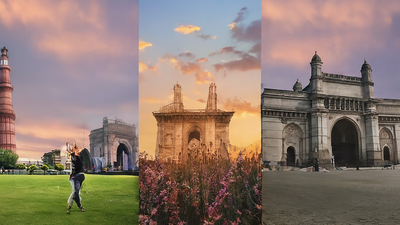Delhi, Mumbai, or Bengaluru: Which is the most affordable city for students in 2026?

With rising education costs worldwide, affordability has become one of the most important considerations for students planning their higher studies. While India’s top metros including Delhi, Mumbai, and Bengaluru are known for their academic institutions and career opportunities, how do they stack up when it comes to affordable student living?According to the latest QS Best Student Cities 2026 rankings, Delhi stands out as the most affordable city among the three, and also among the most cost-effective destinations globally. But affordability alone doesn’t tell the full story.Here’s a deeper look into how these cities compare not just on cost, but on student satisfaction, career readiness, and overall quality of life.
Delhi (QS Rank 104)
With an affordability score of 96.5, Delhi ranks among the most budget-friendly cities for students worldwide, outperforming many global and Indian metros. What makes Delhi so affordable?
- Low living costs: Shared accommodation, metro connectivity, and inexpensive food options in student zones like Kamla Nagar, North Campus, or Mukherjee Nagar make daily expenses manageable.
- Public universities: Institutions like
Delhi University (DU) and JNU offer some of the lowest tuition rates among top-ranked universities. - Well-connected transit: The extensive Delhi Metro network allows students to travel across the city at minimal cost.
However, Delhi scores just 17.8 in student view, one of the lowest among Indian cities. This score reflects students’ perceptions of safety, diversity, and quality of life, which may be affected by the city’s fast pace, pollution, and sometimes overwhelming infrastructure.
Mumbai (QS Rank 98)
Mumbai, India’s financial and entertainment capital, is ranked 98 globally, making it the top Indian city in QS’s 2026 list. While its affordability score of 86.3 is lower than Delhi’s, the city offers a better student experience.
- Vibrant campus culture: Colleges like St. Xavier’s, NMIMS, and IIT Bombay draw students from across India.
- Urban convenience: Mumbai’s compact layout and accessible local trains make commutes affordable.
- Job opportunities: The city’s corporate hubs and media industry make it a favourite for those in finance, media, and tech.
Yet, Mumbai’s student mix score is just 9.8, indicating a relatively lower international student presence, possibly due to higher accommodation costs in central areas.
Bengaluru (QS Rank 108)
Bengaluru, often dubbed India’s tech and startup capital, offers an appealing blend of affordability (84.3) and student satisfaction (56)—the highest among the three.
- Youthful energy: With institutes like IISc, Christ University, and PES, the city boasts a strong student presence.
- Affordable lifestyle: Areas like Koramangala and Jayanagar offer student-friendly cafes, co-living spaces, and co-working hubs.
- Career potential: With giants like Infosys, Wipro, and global tech MNCs headquartered here, job prospects post-study are strong.
While Bengaluru fares slightly lower in university rankings (31.5) and international diversity, students rate their experience here highly, thanks to the city’s weather, social life, and startup vibe.
How the three cities compare
Here’s a quick comparison of Delhi, Mumbai, and Bengaluru across scores in key parameters from the QS Best Student Cities 2026. While Delhi dominates in affordability, Bengaluru leads in student satisfaction, and Mumbai strikes a balance between cost and career opportunities.
The bottom line
If you’re looking for the cheapest student experience, Delhi is your best bet, especially if you’re targeting public universities. Meanwhile, if student life, culture, and career exposure matter more to you, Bengaluru offers a vibrant, affordable mix. Mumbai sits in the middle: slightly more expensive, but offering better employer networks and a well-rounded student experience.In the end, the best city depends on your budget, career goals, and lifestyle preferences. But wherever you go, these three cities prove that world-class education in India doesn’t have to come with a global price tag.TOI Education is on WhatsApp now. Follow us here.




